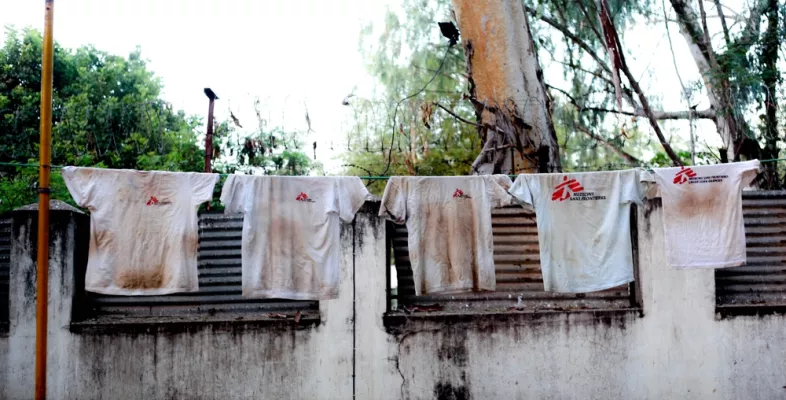Work and life on deployment overseas
An assignment with us will be challenging but you will also have unforgettable experiences. Your everyday life will probably change a lot and you will only be able to cope if you are resilient and can do without the comforts of home for a longer period of time.
We will provide you with food and lodging during your assignments. Most of our project staff come from a wide variety of countries and cultural backgrounds and our staff usually live together in their own houses on a larger compound. Depending on the country and project, the accommodation can be very secluded and simple – sometimes this will be a hut, sometimes a house or a tent. You will usually have your own bedroom. Bathroom, kitchen and living room are generally shared with other staff members and sometimes in emergency situations even the bedroomin. In most cases, you don’t have to take care of the housework, and cooking and cleaning are usually taken care of.
The climatic conditions in many project countries are also challenging. There can be extreme heat, cold or high humidity, it can rain heavily and be swarming with insects. There isn’t always air conditioning. Depending on the country of assignment, electricity or internet access sometimes fails, making it difficult to communicate with relatives and friends back home. Access to electricity and internet is usually insured on most project sites.
We often work in countries where the security situation is critical. In this case, you will have to follow strict rules. There may be curfews and your freedom of movement may be severely restricted. This means you might not be allowed to leave your place of work or residential area on your own, or only by arrangement. Security measures may also affect your leave. It may not be possible to leave or travel around the country. Your contact with the local population may also be restricted.
Physically demanding work
The work itself can be extremely stressful and physically demanding. Free time is scarce, a six-day week with twelve-hour days, weekend work and night shifts are not uncommon. On top of that, you often have to manage without the kind of technical equipment that can make work easier and save lives that you would normally have access to in your home country. This can be psychologically stressful, so can the conditions in the projects with the acute needs of patients, many of whom suffer from war, displacement, malnutrition or easily preventable diseases.
Before you decide to go on an assignment, you should think about the prospects very carefully: Are you prepared to live in basic conditions for months on end? Can you imagine sharing your living quarters with people you didn’t choose to share with? To find out more about life in the projects, we recommend that you read the blogs from our staff.





